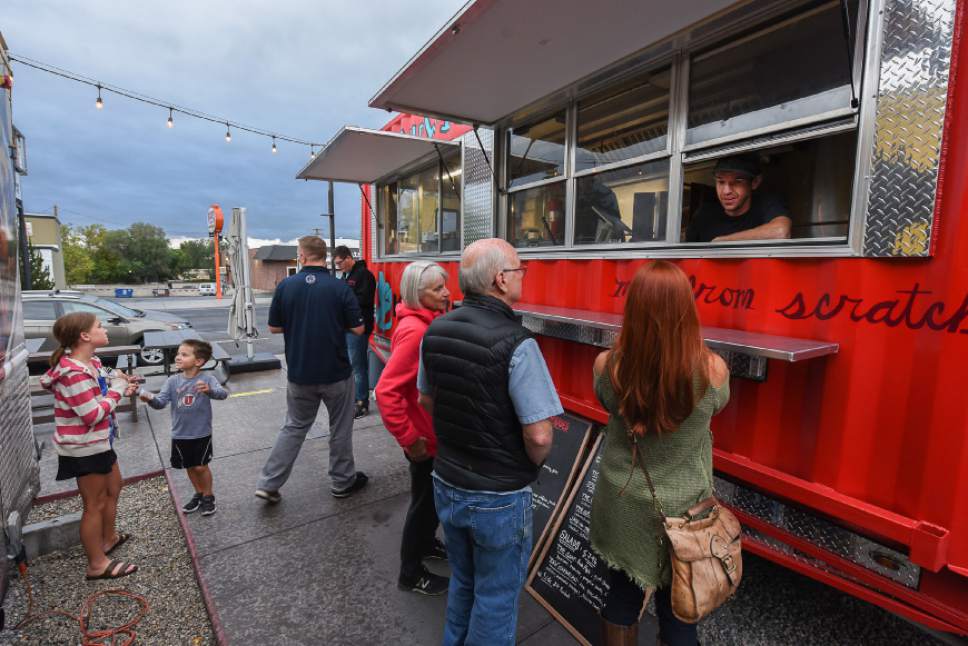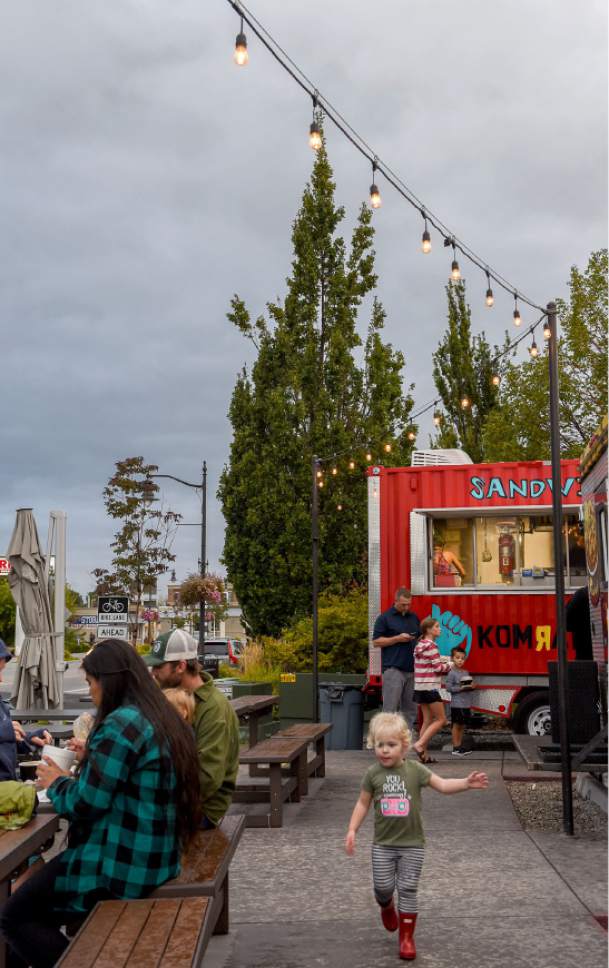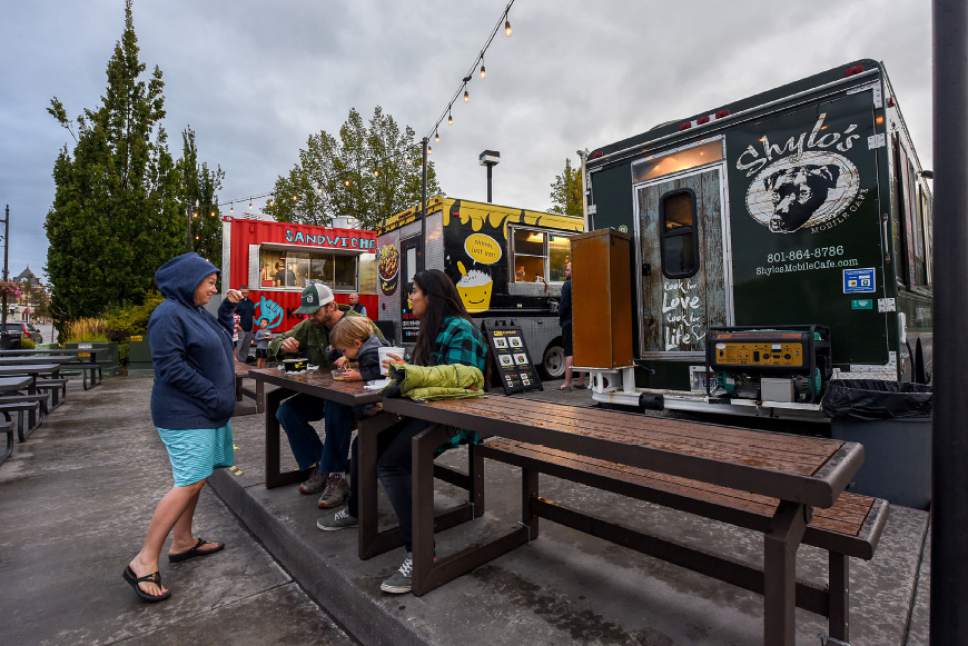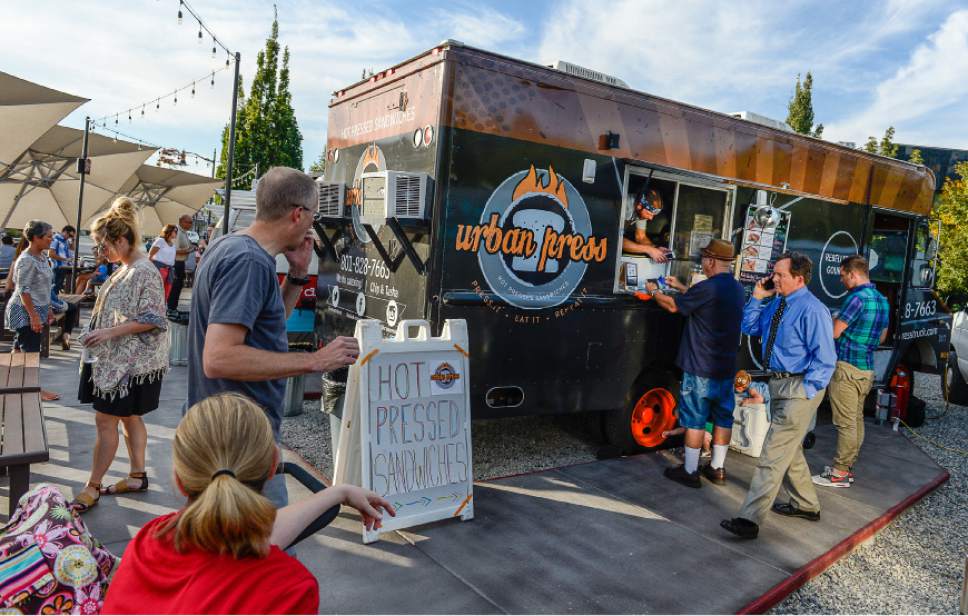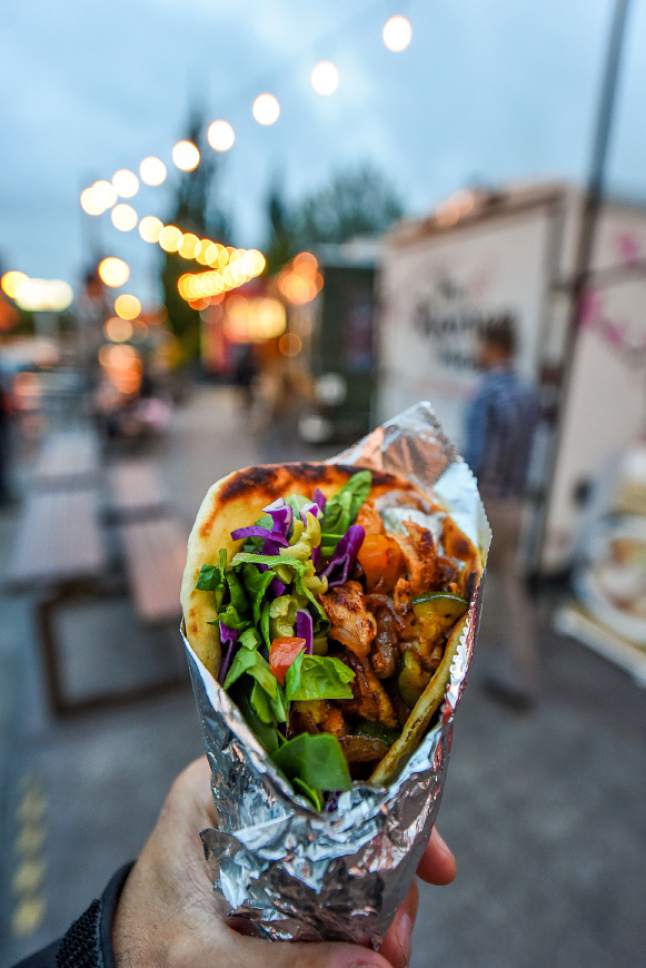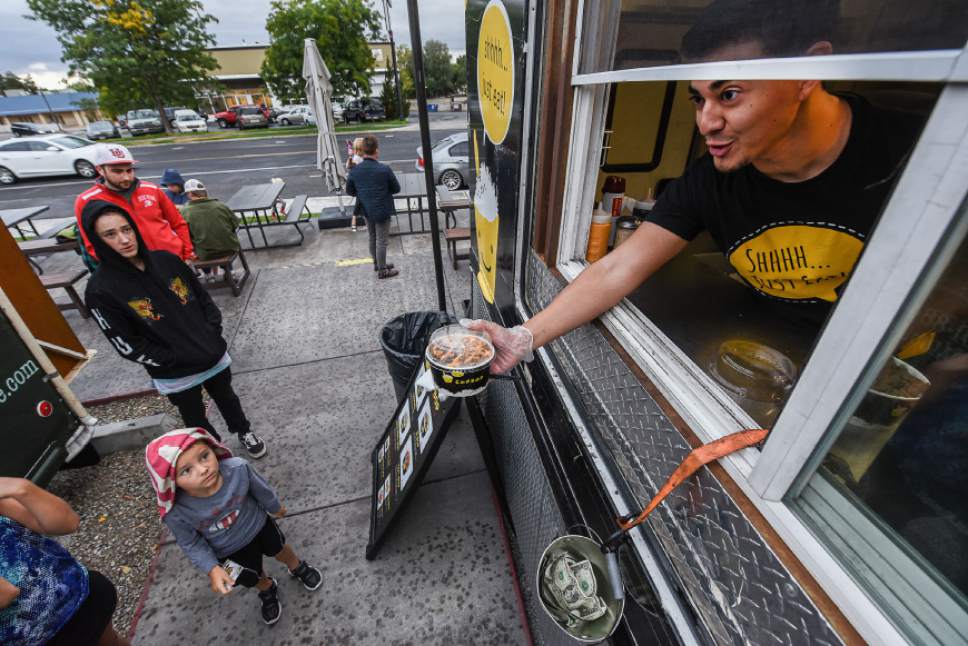This is an archived article that was published on sltrib.com in 2016, and information in the article may be outdated. It is provided only for personal research purposes and may not be reprinted.
When Adam Terry launched his first Waffle Love food truck in 2012, he assumed the business would succeed or fail based on the taste of his crispy, Belgian-style waffles.
He learned quickly that what really threatened his new business was keeping up with the costs of permits and regulations imposed by Utah city and county governments.
Waffle Love, which now has five food trucks, spends nearly $5,000 annually to buy 20 city business licenses, four yearly health department permits and six temporary health permits; the company pays an employee to keep up on the regulations and do all the paperwork, Terry told The Tribune. "It adds up after a while."
To create awareness about the maze of regulations that Waffle Love and other Utah food trucks face, the Libertas Institute and the Food Truck League are sponsoring what they've dubbed the Rally for Food Truck Freedom on Wednesday at This Is the Place Heritage State Park in Salt Lake City. (See box for details.)
Utah's first food truck arrived in 2010, and since then the field has grown exponentially, fueled by social media, which is how fans find new trucks and follow favorites.
Maybe the best indicator of the phenomenon is the number of food truck events that now take place across the valley, from the Thursday Food Truck Rally at Salt Lake City's Gallivan Center to the success of the Soho Food Park in Holladay, believed to be the only park dedicated to food trucks in the country, said owner Mark Olsen.
Part of the appeal of food trucks is their spontaneity and ability to appear at different locations at different times to serve different populations, said Connor Boyack, president of Libertas, a Utah think tank that promotes free market policies.
City laws, however, can have a dramatic effect on mobility, he said. Some communities put food trucks in the same permit category as fireworks stands; other cities have banned food trucks altogether; still others have created proximity rules to prevent food trucks from operating too close to brick-and-mortar restaurants.
Boyack said food truck owners across the country are fighting back, especially with the proximity policies, which they believe are an inappropriate use of government power, playing favorites and shielding certain businesses from competition.
The courts have started to weigh in. In 2015, the Institute for Justice, a nonprofit that works to limit the size and scope of government power, filed a lawsuit against the Texas city of San Antonio, which banned food trucks from vending within 300 feet of brick-and mortar restaurants. The Texas Supreme Court ruled in favor of the food trucks and the city was forced to repeal the law.
Hoping to avoid similar lawsuits in Utah, the Libertas Institute is working with State Sen. Deidre Henderson, R-Spanish Fork, to draft legislation to be considered for the 2017 session. The bill, still being drafted, is intended to "streamline a lot of the issues that food trucks are facing," said Boyack.
Food trucks, for example, compare most closely to catering companies, he said, which prepare foods in commercial kitchens or commissaries and then cook and/or serve the offerings at a different location. But catering companies do not have to apply and pay for business permits in every city in which they operate, nor do they have to be inspected by every health department.
The ability to have mobile food vendors register in one city, be inspected by one health department and have it recognized universally across the state would relieve food trucks of the "most significant regulatory pressure" they face, Boyack said.
Jeffrey Oaks, food protection manager with the Salt Lake County Health Department, believes it's "apples and oranges" to compare food trucks to caterers. Most food trucks prepare meals to order right on the truck over several hours, while caterers prepare large quantities of food in advance, to be served at a specific time. Oaks said the universal permit is a good idea in theory, but could pose a problem when shutting down businesses with violations.
"We could stop someone from operating in our county, but since we didn't issue the permit, we wouldn't have any mechanism to stop them from coming back the next day and doing the same thing," he said. "The permit is the mechanism we use to lean on them and correct the issues."
Cities, which already are struggling with e-commerce and other new ways of delivering services, would also be wary of doing away with business permits and the money they bring in, said Ken Bullock, executive director of the Utah League of Cities and Towns.
"Community leaders want a vibrant community and want residents to enjoy a variety of different types of food and cultures," he said. "But they also need to give consideration to restaurants who have invested a significant amount in brick and mortar. We need to be able to find a balance between the old established economy that has infrastructure versus the one that is transitory."
Bullock would like the cities and food trucks to work on a solution together, rather than relying on the Legislature.
"I don't know if that's the best way to work through the issue," he said.
Food Truck Freedom Rally
Support local food trucks, listen to live music and learn about a proposal seeking to streamline food truck regulations throughout Utah. Sponsored by the Libertas Institute and The Food Truck League.
When • Wednesday, Sept. 28, 5 to 8 p.m.
Where • This is the Place Heritage Park, 2601 E. Sunnyside Ave., Salt Lake City
Cost • Admission is free; meal tickets are $5 each and can be redeemed at any of the 12 participating food trucks. Tickets available at the door or in advance at http://foodtruckfreedom.com


